You can use a normal mobile phone SIM card in other devices like tablets, 4G routers, mobile broadband dongles & other connected devices.
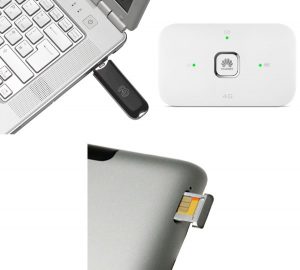 Until 2018, you had to buy a special mobile broadband SIM card if you wanted to use it inside a tablet, 4G router, or mobile broadband dongle. This also used to apply to IoT (internet-of-things) devices such as cameras, alarms and GPS trackers.
Until 2018, you had to buy a special mobile broadband SIM card if you wanted to use it inside a tablet, 4G router, or mobile broadband dongle. This also used to apply to IoT (internet-of-things) devices such as cameras, alarms and GPS trackers.
Nowadays, it’s no longer the case that you’ll need to buy a special type of SIM card. You can just use a normal mobile phone SIM card in most devices (with only a couple of exceptions). This includes using a regular mobile phone SIM card inside a tablet, 4G router, or mobile broadband dongle.
In this article, we’ll look at the best value SIM cards for use in a tablet, 4G router or mobile broadband device. We’ll also look at the legislation around this issue in the UK and the restrictions that still apply when you use your SIM card in certain devices.
| Compatible SIM Cards: | From £2.50 per month |
|---|---|
| Unlimited Data: | £12.50 per month for unlimited 5G data on Lebara (use the KEN3 voucher code to get 3 months half price, reverts to £25/month) |
| Tablet & iPad SIMs: |
(includes 3 months half price with the KEN3 voucher code) |
| Router & Dongle SIMs: |
|
Contents
Best SIM Cards By Device Type
Tablets & iPads
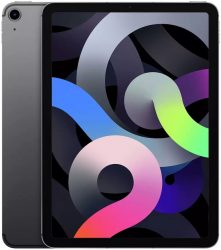 If you’re using a 4G or 5G tablet like the iPad or the Samsung Galaxy Tab, our recommendation is currently to get a Lebara Mobile SIM-only deal. That’s because you can get a Lebara Mobile SIM card from just £2.50 per month with no contract, no credit check, and 5G coverage from the Vodafone network.
If you’re using a 4G or 5G tablet like the iPad or the Samsung Galaxy Tab, our recommendation is currently to get a Lebara Mobile SIM-only deal. That’s because you can get a Lebara Mobile SIM card from just £2.50 per month with no contract, no credit check, and 5G coverage from the Vodafone network.
For regular usage, we’d recommend the 15GB data plan at £7 and the 15GB data plan at £7. You’ll get three months half price when you use the KEN3 voucher code at checkout, bringing the price down to that shown in the table below:
| Network | Data | Monthly Cost | |
|---|---|---|---|
| 5GB data | £2.50 for 3 months, then £5 per month 1 month rolling | See deal |
| 15GB data | £3.50 for 3 months, then £7 per month 1 month rolling | See deal |
| 30GB data | £4.00 for 3 months, then £8 per month 1 month rolling | See deal |
| 50GB data | £4.50 for 3 months, then £9 per month 1 month rolling | See deal |
| 100GB data | £10.00 for 3 months, then £20 per month 1 month rolling | See deal |
| Unlimited data | £12.50 for 3 months, then £25 per month 1 month rolling | See deal |
If you’re using the SIM card inside an iPad, you won’t normally be able to use the inclusive minutes and texts (as neither calling or texting are supported on the iPad). However, you’ll still save money compared to buying a mobile broadband SIM card.
On some Android-powered tablets (e.g. those from Samsung), it might be possible to make and receive phone calls and text messages on the device.
Routers & Dongles
 If you’re using a 4G/5G router or a mobile broadband dongle, our current recommendation is to get an unlimited data plan from Lebara Mobile, Three or SMARTY. All three networks offer unlimited data with 5G at no extra cost and with no restrictions on how many devices you can use at the same time.
If you’re using a 4G/5G router or a mobile broadband dongle, our current recommendation is to get an unlimited data plan from Lebara Mobile, Three or SMARTY. All three networks offer unlimited data with 5G at no extra cost and with no restrictions on how many devices you can use at the same time.
On Lebara Mobile, you’ll get unlimited data for just £12.50/month for 3 months. To get it, you’ll need to enter KEN3 as your voucher code at the checkout. Lebara offers 4G & 5G coverage from the Vodafone network.
| Network | Data | Monthly Cost | |
|---|---|---|---|
| Unlimited data | £12.50 for 3 months, then £25 per month 1 month rolling | See deal |
If you’re looking for a bigger name mobile network and the ability to get a proper IP address on your router (this is required for running a server and playing some online games), you can get unlimited data from £18 per month on Three:
| Network | Data | Monthly Cost | |
|---|---|---|---|
| Unlimited data | £18.00 per month 12 month contract Monthly cost rising to £20.30 on 1 Apr 2026 | See deal |
| Unlimited data | £27.00 per month 24 month contract Monthly cost will rise each April by £2.30 | See deal |
| Unlimited data | £32.00 per month 1 months half price 1 month contract Monthly cost will rise each April by £2.30 | See deal |
Alternatively, SMARTY’s £18 unlimited data plan is a good one-month rolling option with access to 4G & 5G coverage from Three. However, it isn’t possible to get a publicly-accessible IP address on SMARTY.
| Network | Data | Monthly Cost | |
|---|---|---|---|
| Unlimited data | £18.00 per month 1 month contract | See deal |
IoT Devices
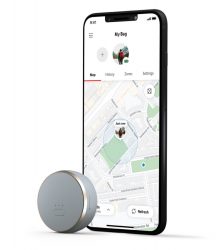 If you’re using an internet-of-things (IoT) device like a GPS tracker, alarm system, entry system or sat nav, the best value SIM card will depend on the requirements of the device.
If you’re using an internet-of-things (IoT) device like a GPS tracker, alarm system, entry system or sat nav, the best value SIM card will depend on the requirements of the device.
For devices not using very much data, consider getting a 1pMobile internet-of-things SIM card. This gives you 2G, 3G, 4G & 5G coverage from EE. There are no regular monthly charges on 1pMobile: you’ll just pay for what you actually use at the rates of 1p/minute, 1p/text and 1p/MB. On 1pMobile, you’ll need to top-up your SIM card with at least £10 of credit every 120 days.
Net Neutrality & Smartphone SIM Cards

In the UK, the big mobile networks have historically sold two different types of SIM card:
- Regular SIM cards with inclusive minutes, texts and data (normally marketed for use in mobile phones).
- Data only SIM cards without any minutes or texts (normally marketed for use in tablets and dongles).
Paradoxically, you’ll pay less for a regular SIM card than you would for a data-only SIM card. That’s despite the fact you’re normally getting more data, as well as getting minutes and texts included. The reason for this is simply the market dynamics: there’s a lot more competition on regular mobile phone SIM cards.
Prior to 2018, the terms and conditions on many mobile phone SIM cards would prevent you from using the SIM card in devices other than a mobile phone. However, this changed in 2018 as Ofcom ruled that this was a breach of net neutrality as defined in the Open Internet Access Regulation:
The EU Open Internet Access Regulation, among other things, enshrines ISP customers’ fundamental right to access the content and information, to use the applications and services, and to use the terminal equipment of their choice through their internet access service through their internet access service. ISPs may enter into agreements with their customers on the commercial and technical conditions of the service, but in doing so they cannot limit customers’ core rights.
In particular, Ofcom took issue with a mobile network that “imposed restrictions on the devices in which a SIM can be used – e.g. where a SIM purchased for a mobile phone cannot be used in a tablet”.
Since the Ofcom ruling was published in 2018, most restrictions stopping you from using a smartphone SIM card in other types of device have been removed. You can therefore now use a regular mobile phone SIM card in other types of device such as a tablet or mobile broadband dongle.
If you’re using an unlimited data plan, some mobile networks impose a limit on the number of tethered devices. In addition, some UK networks prohibit the use of their SIM cards in a 4G home broadband router. For more information, see our in-depth guide to unlimited data plans in the UK.
SIM Cards for Smart Devices
 In most cases, it should now be possible to use a regular smartphone SIM card inside any connected device. This includes your tablet, mobile broadband dongle, router or other connected devices like your laptop, camera, vehicle tracker, pet tracker, alarm, etc.
In most cases, it should now be possible to use a regular smartphone SIM card inside any connected device. This includes your tablet, mobile broadband dongle, router or other connected devices like your laptop, camera, vehicle tracker, pet tracker, alarm, etc.
Before you go ahead and choose a SIM card, it’s still worth thinking about the following things:
- Are you using the SIM card inside a router? If so, we’d recommend getting an unlimited data SIM card from Three. That’s because they’ll allow you to use the unlimited data SIM card inside a router. They’re also the only provider to give you a publicly-accessible IP address. If you don’t need a publicly-accessible IP address, you can also consider getting unlimited data from Lebara or SMARTY.
- Do you need 2G or GSM coverage? Some IoT devices will only function on 2G networks (also known as GSM or GPRS). If your device requires 2G coverage to work, you should choose a mobile network that uses coverage from either EE, O2 or Vodafone. It isn’t possible to use Three or another mobile network that uses coverage from Three as they do not offer any 2G coverage. If you need better rural mobile coverage (e.g. for use in a GPS vehicle tracker), we’d typically recommend choosing a SIM card with EE coverage. This is because they tend to have the widest geographical coverage in the UK.
- What do you need in terms of download speeds? Different use cases and different categories of device may require different download speeds. For instance, Vodafone’s unlimited data plans come with a range of speed limits (2Mbps on Unlimited Lite, 10Mbps on Unlimited and uncapped download speeds on Unlimited Max). For high bandwidth devices like a router or dongle, you’ll want access to the fastest speeds available.
- Do you want to Pay Monthly or Pay As You Go? For most high-bandwidth devices that are in regular use (e.g. tablets, dongles and routers), you’re best off getting a Pay Monthly SIM card. These SIM cards start from around £5/month. For low-bandwidth devices that will only connect to the internet occasionally (e.g. alarms and GPS trackers), it may be better choosing a Pay As You Go SIM card.
- What are the minimum usage requirements on Pay As You Go? If you choose a Pay As You Go SIM card for your IoT device, you should bear in mind the minimum usage requirements. Typically, your SIM card will get disconnected from the network if you don’t use it for a chargeable activity at least once every 6 months. Some IoT devices have the functionality to keep your SIM card alive (e.g. by sending a text message automatically on schedule). If not, it’s possible you’ll need to pull out the SIM card from time-to-time, placing it inside another device to trigger a chargeable activity (e.g. by sending a text message to yourself).
For more information, see our guide to the best Pay Monthly SIM cards and the best Pay As You Go SIM cards. If your device requires an eSIM, see our guide to the best eSIM plans.
More Information
For a round-up of the best SIM cards currently available on the market, see our guide to the UK’s best SIM only deals.
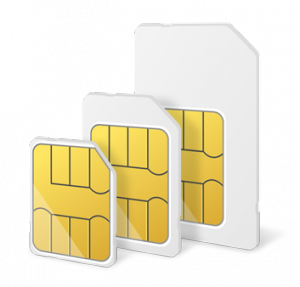
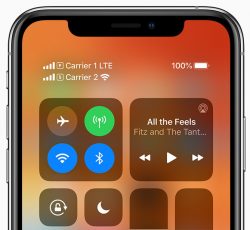




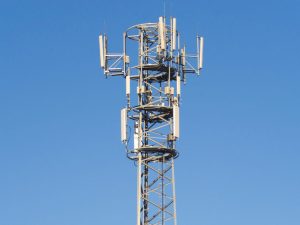


TonyH said:
My issue with Lebara is that it works perfectly well in my TP Link router in the UK but in France it does not. The Carrier vodaphone comes up and I cannot get on through them as I do not have a contract with them. Have spent upwards of 2 hours with Lebara and TP Link and still have no answer. I think it could be to do with the settings but no one can tell me what to do. Reluctantly thinking of buying a french sim card next time I go.
Charles said:
I would like to use Lebara SIM card with Linksys FGW3000 5G router. Even though the router seems received 5G signal and the WAN IP Address is shown, but all my devices can’t connect to the internet though the router. My router does have APN setting option, so I cannot changes the APN setting. I’ve also tried to SIM card from providers other than Lebara such as 3 & O2, and it works.
Apart from using the SIM card other than Lebara, does any one have any ideas to solve the problem?
Michael Tapley said:
I had a SIM from Utilty Warehouse. I was told to cease and desist using it in a router. I took up the case with Ofcom who first told me that a company can overrule Ofcom regulations with their own terms and conditions; this was then reversed on a further call where I was told they would look into it; this became a saga ending with me making a complaint against Ofcom for not enforcing its own regulations. I was advised that, as Ofcom are considering updating their regulations, they don’t see the need to enforce the existing ones (or words to that effect). They also don’t see the need to keep people who raise these industry wide violations informed. I am now about to raise the matter with my MP as Ofcom’s attitude seems to be more swayed by industry interests that consumers. It’s now 2 years since I first raised the matter with Ofcom and still we have blatant violations of Ofcom’s own policies and regulations. I am paying 2x what I should be for rural broadband via mobile!!
Darren replied:
I’m with UW and was thinking of using one of there’s for the same thing but if Ofcom are so weak, why are the governments using taxpayers money to fund these regulators if they aren’t going to enforce the rules…
Thanks for uploading as it’s saved me a load of unnecessary trouble.. I hope you manage to get yours resolved favorably.